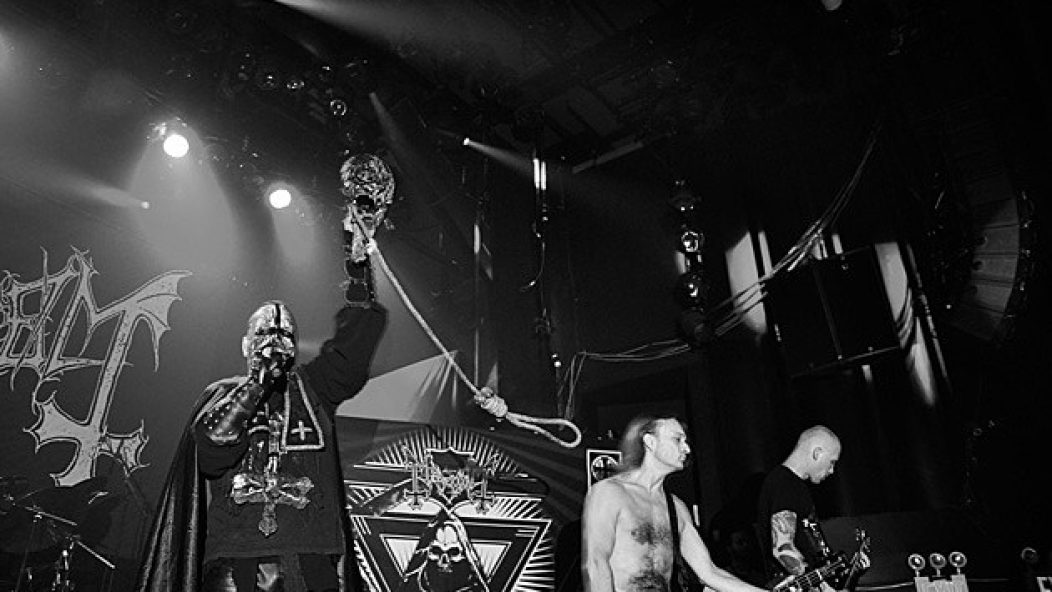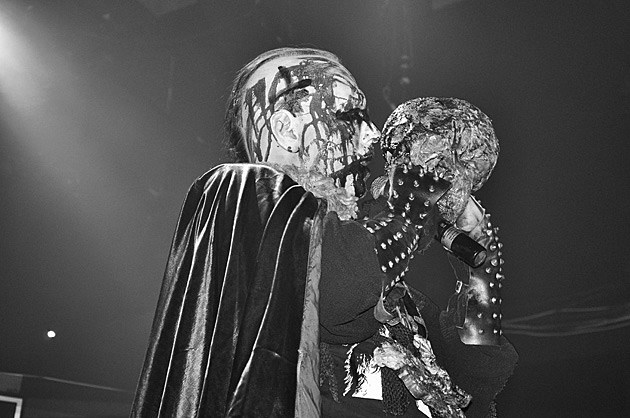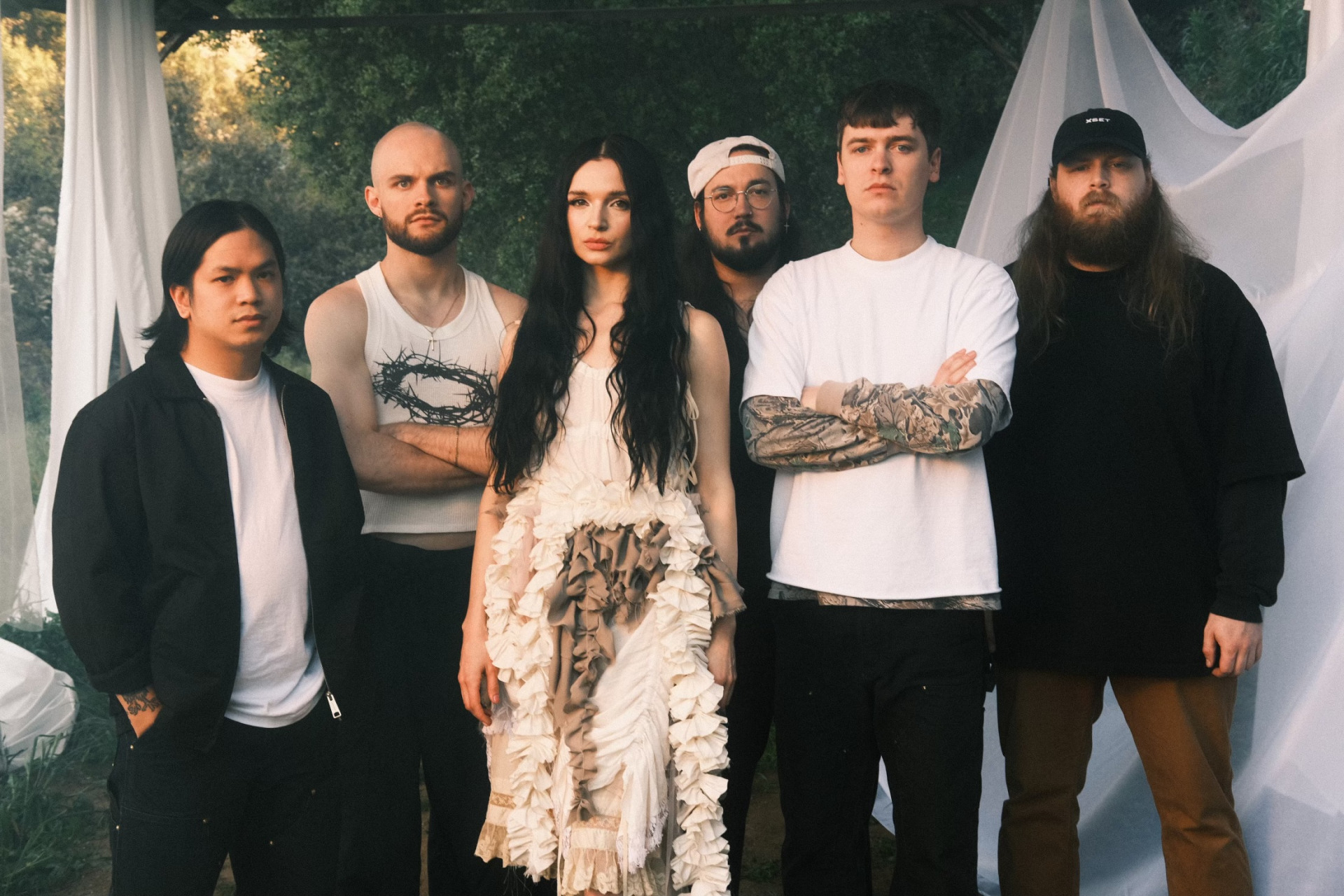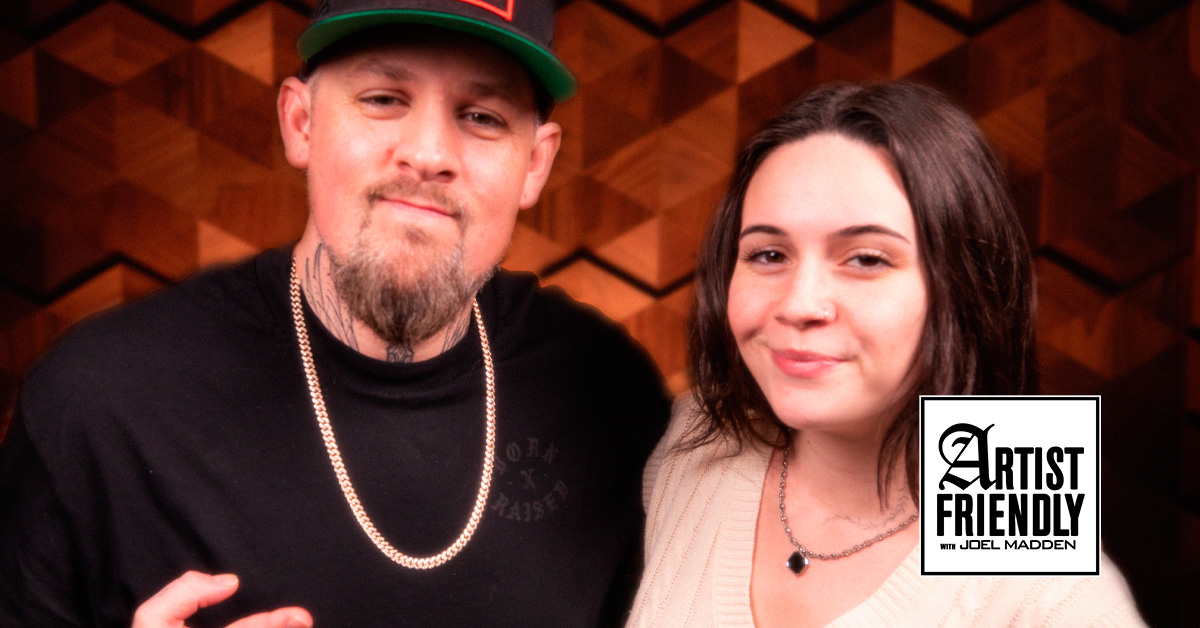
Interview: Attila Csihar of Mayhem

Photo by Wyatt Marshall
…
“Jesus Christ,” I say at the end of my interview tape, before turning off my recorder but after closing my Skype call with Attila Csihar, vocalist of the infamous Mayhem. I’ve interviewed eccentric musicians before, but Csihar might take the cake. When it comes to the vaguely science fictional lyrical bent that permeates the new Mayhem album, Esoteric Warfare, he’s come by it truly.
The man has earned his quirks. There is no vocalist quite like Attila. He seems to have a preternatural ability to bend and flex his croaking guttural into all manner of inflections. In his book Sound of the Beast, author Ian Christie called his delivery “operatic,” which makes sense, considering both Attila’s flair for drama, and his dabbling in musical theater.
Attila and I discussed this and more, including some insights into how he maintained his unique moaning, and his work with drone metal outfit Sunn O))), during one. . . unforgettable. . . call.
…
It seems like Mayhem could do more live gigs. Why so sporadic?
Maybe. We’re busy with this new record now and actually have a new booking agent, so I think we play enough. It’s the kind of show you don’t want to see everyday. We need some breaks. I think it’s cool like that, to keep it interesting and, also, for our evolution.
So, you played Caiaphas in Jesus Christ Superstar a couple years ago?
Yeah, that was in 2000. A very long time ago, 14 years ago, I had this role. It was more about playing the music than acting. It was cool. I really liked it.
Doesn’t it seem interesting that the frontman for the most dangerous black metal band in the world would do a musical. And that musical?
At that time I was not in the band, but I know what you mean. Actually, I liked the role—the corrupter who sentenced Jesus Christ to death. There’s this song, “This Jesus Must Die.” It was an interesting experience to rehearse and just hang out with those people. It’s kind of strange that it stopped actually. It was successful and I do not know why it faded out. We had one show in an old castle in the concert style of Hungary and there were a lot of people. I don’t know, it was a strange experiment.
…
…
It’s been seven years since Ordo Ad Chao; I was still in college when the last record came out. Obviously this is your first one with Teloch as the main songwriter. How has this Mayhem record been different from all the other ones?
Of course it took some time, changing the line-up. The new album is different from all the other ones. We wanted to do something a little more straightforward and back to our roots, yet kind of contemporary. The texture of the mind and mind control, the consciousness and how it affects reality, are always the questions of every Mayhem song. It’s still the Mayhem dimension.
Was that a conscious decision? Did you and Teloch and everyone come together and say we don’t want it to be as abstract as it was before?
Yeah, it was the whole band. We needed something a little bit more straightforward to play live. On the new album there is some space, but in general, I think it’s a bit more full and more musical in the sense that it repeats and stuff like that. It’s not as abstract as the last record was. I think it’s hard work [to be so abstract]. It’s almost our self-expression, those kinds of records.
That question came to me because I really enjoy your work with Sunn O))) and I’m familiar with all of your work separate from Mayhem, which is all free-form. I didn’t ever see Mayhem going back to rock and roll.
We have that rock and roll thing, that’s Mayhem. The band is 30 years old this year. It’s really amazing for me to do the absolutely extreme other end of music. Yet, it’s the same space for me, the same kind of message, but from the total opposite end. Like, Mayhem is extremely fast, but there is still this slow pendulum [he swings his hand, illustrating]. So, there is this connection between the two bands for me on many levels, but the most important thing is what I experimented with in Sunn O))), and what I learned in those shows, I can use in the Mayhem shows. So, it’s kind of like a symbiosis of the two bands for me.
I think it’s very extreme, the whole idea; I think it’s artistic and innovative. It’s more like a sound installation than playing music, it’s more like making sound waves, but still of course it’s composed. But it’s very much on the edge, like you said. I like these extreme forms of music, how they connect even from those distances. So, it’s kind of like a balance, these two bands.
Your approach to the extreme vocal is instantly recognizable and I wanted to know how you found your sound and how you preserve it?
Yeah, I guess it’s a bit of gift. I’m just saying like. . . my whole body. The breathing is very important and crucial, but of course for a performance one should forget these technical things. It’s good to practice. I like to experiment with the voice and look at my body like an instrument and just try to do different stuff. I’m looking for my own boundaries, but it’s always a new goal and it’s an endless process. It’s something like Zen Buddhism or martial arts, you just practice for practice itself. Sometimes you can practice in your mind. It’s kind of like this thing becomes part of your life. I practice in my mind a lot.
I’ve never had the chance to see Mayhem live, but I’ve seen videos and often you’re sort of stationary, like you don’t seem to move around very much. There’s photos of you chained up to the crucifix and stuff like that, so is it difficult for you to be physical, when you have to stay still or does that help?
It’s just a whole mind and body experiment, the whole show. There are show elements and that’s a great fun and they add to the show, but still the music is the most important thing. My goal in life, I love the live music experiment. We are together with the people and it’s so much energy. It can go wrong and it can go well.
I have these peaks where I feel, Yes, something opened, something in this place, in honor of Mayhem and its members. It’s a transcendent feeling, those moments I am trying to reach. When the space opens, the borders of your body fade and expand and it’s very personal. To sustain this and to be honest with that for the audience and yourself and it’s not just acting in a theatre. . . it’s not like you go home and take off a jacket. It’s always with us, and we have this connection to the darkest point of nature. I love it, the whole energy. It’s like a black diamond or something; when it shines through it can be very strong and those moments are really memorable.
…
…
There’s a lot of performers who could put on jeans and a black T-shirt and get on stage and just kind of do what they do. But for you there is this element of ritual to it. You’ve got these very fine art pieces that you wrap yourself in. Where does that instinct come from?
My first idea was about the ancient times. There were so many cultures that had this makeup and stuff, but if you look at sculptures of Egyptians, the ceremonies had costumes. Mayhem has always been this tortured band, even before I joined. I think it’s also very personal, like the shaman has to enter an altered state of mind and for that they use a mask and it has to be this symbol of the transformation of energy. I also wear the mask for the ritual, because sometimes I feel like a vessel and just give up my body. When you put these signs and archetypes on you, you change reality around you. It’s a show, but it separates two different aspects of being. It’s still just music, I don’t want to mystify it too much, but music itself is so ancient. The music goes through your body and all your cells, it’s not just our ears.
Being in a black metal band, I never would’ve thought of you as a spiritual person. What are your spiritual beliefs, if you care to talk about them?
It’s always evolving. It’s kind of like searching or a journey. Searching inside and outside. I really like quantum physics, for instance, but that’s kind of like a religion too—that our consciousness is somehow connected to a quantum consciousness. That’s just mainstream science basics, that the world is like a holographic model, and I’m just excited about this age, actually. What’s going to happen when we come out of all this? I think it’s an interesting age and that’s why I like the ideal concept of the mind and consciousness. It’s interesting that there is no objective reality anymore. This is what mainstream science says. But we are still here and it’s a great experiment and no one can explain who we are because I can say I dreamed this life. We chose to have this experiment together for some reason. It’s non-religious because I think religion is unfortunately a form of mind control.
Reality is much more free. We can’t even comprehend [it], because we don’t use our brain in the full capacity, apparently. It’s just coming out that we make our decisions before we are conscious about it, like five seconds before. That means that our whole reality has shifted already. They did this experiment where they scanned a brain that randomly made a decision, like right or left, and they can see it [in the scans] six seconds earlier.
Religion is not so interesting anymore, but science is going into spiritual fields now. This quantum consciousness theory, that there must be a consciousness connection which makes reality pop in and out of other dimensions, that’s fucked up. So in a way, science turns back to religion because it’s the same thing.
Clearly, the group of musicians you’re in has a history of violence; riots have happened at Mayhem shows and Mayhem has a dark history. I was just wondering if you’ve ever felt that you were in danger at all? Like have you ever been scared of being in Mayhem?
No, but I’m always scared in every moment. But actually, not really, because this is just our life path. All of the violence that people see, I think it’s just a very happy form of releasing suppressions. Everybody’s personal path has many suppressions which are unnecessary. I think our show is a welcome and free way to release it and just offer it back. Rather than running away, embrace the darkest aspect of nature that’s in us. So, all of this violence in the shows, it’s never against another person there, it’s just expression of suppressed energy. If there is a problem, people don’t beat up each other, they actually help each other out. It’s a collective way of releasing the suppressions, turning to negativity and turning it back to something positive. If you go to football match, you see the same energy there, too. I don’t think we are worse than that.
…










